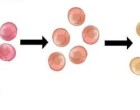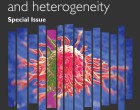Helpful predictability in colorectal cancer

Two recent studies in Genome Biology measuring the mutational difference between the primary and metastatic colorectal cancer confirm high concordance of… Read more »

Two recent studies in Genome Biology measuring the mutational difference between the primary and metastatic colorectal cancer confirm high concordance of… Read more »

A new, fully annotated reference human genome, GRCh38, has now been available for a little over a year. It brought a wealth of new information, but also opened… Read more »

When I was three years old my grandma passed away after a long fight with cancer. I should disclaim quickly: it never affected me greatly, since I was too young… Read more »

As next generation sequencing methods quickly become ubiquitous tools of genomics, more and more effort is directed to understand what are the limitations of… Read more »

One of the greatest challenges of current medicine is predicting how a patient will respond to a given drug. In an ideal world, where time, money and – most… Read more »

Our readers might have gotten distracted this month by discussions on whether it is right or wrong for Illumina to limit researchers’ use of their kit, and so… Read more »

Polycomb-group proteins are a well-characterized family of proteins involved in chromatin remodeling. In mammals, Polycomb-group proteins form two multiprotein… Read more »

Genome Biology would like to announce that we are now inviting Research, Method or Software manuscript submissions for publication in a special issue on cancer… Read more »

About one million insect species have been identified to date; however, many people believe that with this number we’re merely scratching the surface and… Read more »

Genome Biology was sad to learn of Frederick Sanger’s death on Tuesday, November 19th. Although Sanger retired from scientific research 30 years ago, long… Read more »